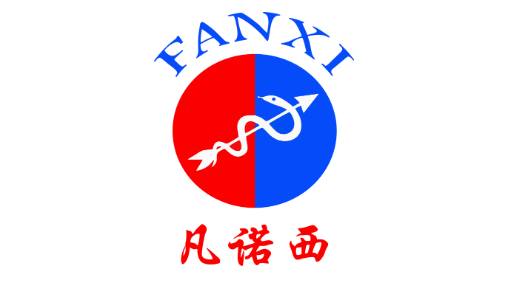The Park offers software and hardware support to micro and small startups for their incubation and growth

Tianfu Life Science Park

Public Laboratory of Tianfu Life Science Park (historical information)
On February 28, the reporter learned from Tianfu Life Science Park that, 21 enterprises graduated from the Park in 2017, four times of 2016. During the past year, like a caring "steward", the Park offered professional office and R&D premises to micro and small startups in their early stage, and empowered micro and small biomedicine enterprises in incubation and growth with its four public technology service platforms, professional investment and financing service, startup guidance, and other four systems.
Hardware
Investing over RMB 80 million to build public technology service platform in the Park
"During their early stage, micro and small biomedicine enterprises are small in scale and lack capital, and always meet obstacles as they seek growth. The largest obstacle is the expansive experiment instrument." On February 28, Wan Xiang, Deputy General Manager of Tianfu Life Science Park, made such a metaphor.
"Biomedicine needs top-notch laboratory and experimental instruments, which are normally priced at two or three million yuan each, a heavy burden for startups." To help micro and small biomedicine enterprises tackle such a problem, Tianfu Life Science Park invested over RMB 80 million to build a public technology platform in line with standards of biomedicine enterprises within the 28,000 square meters of Incubation Building, which covers various R&D domains of biomedicine like chemical, biological drug, traditional Chinese medicine and diagnostic reagent. "The Innovation and Entrepreneurship Service Center of Chengdu Hi-Tech Industrial Development Zone collaborated with Chengdu ChemPartner Co., Ltd. to build the medical platform for chemicals testing. Meanwhile, the Park also built a public service platform for biomedicine innovation and R&D, mainly undertaking the testing of biomedicine and diagnostic reagent results." According to Wan Xiang, the two platforms have no overlapped instrument, and the instruments cover all aspects of the R&D of biomedicine enterprises. The rental for those instruments is quite low, "The rental for the most expensive equipment is only RMB 40-50/hour, affordable for micro and small medicine startups."
Mentioning the public technology platform, Kindos Pharmaceuticals Co., Ltd. ("Kindos Pharmaceuticals") has something to say. The reporter learned that Kindos Pharmaceuticals "graduated" from Tianfu Life Science Park in 2016 and moved in West Area of Chengdu Hi-Tech Zone. According to Gong Wei, Deputy Director of Public Affairs of the company, thanks to the public technology service platform, Kindos Pharmaceuticals passed the certification inspection of FDA to become China's first aseptic preparation R&D institution passing FDA certification with perfect performance.
Software
Working together to recruit professionals
Financing matchmaking
What's more, capital and talent shortages are also obstacles for enterprises to seek growth. "Micro and small biomedicine startups are normally not so visible and struggle to allure desirable talents." According to Wan Xiang, to help resolve such difficulties, each year Tianfu Life Science Park would host recruitment, talent salon, talent training, and other activities to attract talents. "In late last year, we gained a through picture of the talent needs of enterprises within the Park. In late this March, we will host professional biomedicine recruitment fairs in colleges and universities, helping enterprises to attract talents." Biomedicine enterprises within the Park welcomed the activities, and 37 biomedicine enterprises will participate and offer 150 posts, said Wan Xiang.
Capital shortage is another hard nut for micro and small biomedicine startups to crack. Fledgling enterprises have no visibility nor products. They are viewed unfavourably by many investment and financing agencies, let alone gaining investment. To solve the problem, Tianfu Life Science Park relies on the investment and financing service system of Chengdu Hi-tech Investment Group, and cooperate with other investment parties to offer matchmaking for micro and small biomedicine startups to get financing.
"Normally an enterprise can 'graduate' after 3-5 years of incubation. Currently, the Park is home to 54 enterprises under incubation." According to Wan Xiang, there are many other micro and small biomedicine startups that queue up to enter the Incubation Building. Yet they have to pass the assessment mechanism of the Park before entering. In 2018, in order to further promote the growth of micro and small enterprises in the Park, the Park will continue to offer better holistic services, introduce more international consulting agencies with a global vision, and help micro and small biomedicine startups to get their R&D results materialized and put onto market, said Wan Xiang. "We will also integrate enterprises within the Park, enabling communication and business cooperation among them and forming a small bioindustry ecosphere, so as to promote the healthy growth of biomedicine enterprises." According to Wan Xiang, last year, Tianfu Life Science Park ranked top 10 among professional biomedicine parks in China; in the coming 3-5 years, the objective is to make the Park get listed among top 5, which is a shared goal of the Park and enterprises within.
Reporter: He Wenwei, photographer: Zheng Yi
Original title: 21 enterprises "graduate" from Tianfu Life Science Park



Park WeiChart